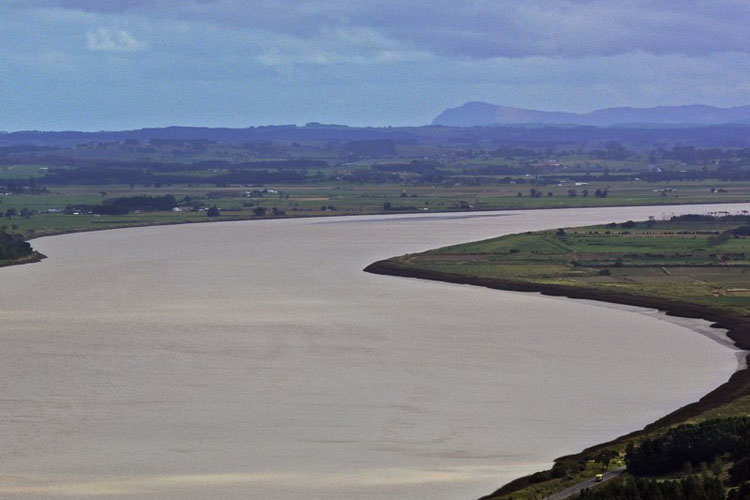Climate Change
The longterm objective to increase understanding of climate change impacts to the Kaipara Harbour, catchment, ecosystems and communities addresses the global and national concern of climate change.

(Image: Jan Doak)
Issue:
Climate change is real. Human activities such as driving cars, farming, burning coal and removal of forests has made the planet hotter. In 2007, the Intergovernmental Panel on Climate Change (IPCC) delivered its fourth assessment and stated that New Zealand’s climate is “virtually certain” (greater than 99% probability) to be warmer with noticeable changes in extreme events. Major climate change impacts include:
- Sea level rise
- Heat waves and fire are virtually certain to increase in intensity and frequency
- Floods, landslides, droughts and storms are likely to become more frequent and intense
- East Northland and Auckland is likely to have lower than average soil moistures causing an increase in demand for freshwater
- Increased storm surges
- Increase in frequency of high intensity, short duration rainstorms.
Natural ecosystems, particularly freshwater, are identified as being most vulnerable to these changes and their ability to adapt is uncertain. The rate at which climate change will occur is well in excess of the evolutionary adaption rate for many species and communities.
Climate change is not just an environmental issue but also a socio-economic and cultural issue. Climate change policy, planning and management are focused not just on the environment but also on people’s homes, business, workplace and playgrounds.
In terms of adaptation planning and understanding the Kaipara’s vulnerabilities there is virtually none at the regional and landscape scale. The DoC Conservation Management Strategies for Northland and Auckland currently do not look at adapting for climate change. Also, there is no climate change policy for fisheries management.
Strategy:
Information regarding what levels of GHG emissions are for the Kaipara and what effects climate change will have on ecosystems and local communities is nil. However, the Kaipara is fortunate to have large amounts of climate, hazard and environmental data to begin to understand climate change impacts and begin to adapt.
Tools and mechanisms are available to adapt and reduce GHG emissions such as incentive schemes, decoupling subsidies to production and switching to environmental and, off-setting carbon (ie., carbon credits, carbon farming, Emission Trading Scheme (ETS)).
Goals:
1. That regional and local government works with iwi and community to address climate change and implements adaptation strategies.

